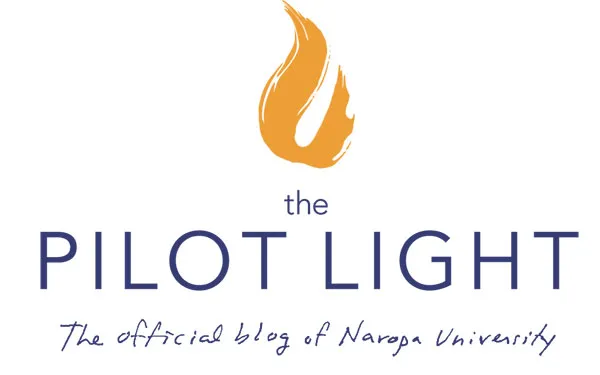
by Moudi Sbeity, MCIC Graduate Assistant, Mindfulness Based Transpersonal Counseling ’26
Habibi,
Arab American Heritage Month arrives on a platter of grief. With the ongoing genocide of Palestinians in Gaza, the slew of economic and political corruptions in countries like Lebanon and Syria, and the rise in Anti-Arab sentiment across the United States, it’s difficult to settle into celebration. The last few months have been particularly difficult. With my family in Southern Lebanon right at the border, I’ve had to maintain diligent focus on my schoolwork and community instead of being siphoned away into newsreels. I’ve consciously ignored what’s going on half a globe away in order to attentively tend to the opportunities I have here at Naropa. And while I have no intention to erase or deny the difficult reality many Arabs face on their own land and in the United States, I’ve come to realize that celebrating my heritage wherever I can is in fact necessary. Doing so is not only an act of political resistance, but stands as a sacred approach to actively championing liberation for those needlessly suffering. This is one way to engage in the sacred activism of keeping the embers of hope alive.
It is common for the whole village to descend into the streets and recite poetic pleas when someone dear passes away. Though the occasion lends itself to the harrowing events of change, still you’ll find endless tables of meticulously prepared feasts. Even then we know to celebrate our sorrow. What is celebration if not the sacredness of bearing witness to each other’s story? Here is a poem I’ve written inspired by the grief I’m holding for Gaza.
Thanking God That We Live
What gets me the most, what I keep
thinking of is the man who, after a
missile had demolished his home,
stood in full self-attendance among
an audience of decimated concrete
with dust in his hair and scorch marks
across his face uttering nothing but
gratitude for his life.
Alhamdulillah – Gratitude be to Allah
How deep must our faith run?
How totally must our heart break so
that gratitude sprouts off our tongues,
so that the mere fact of our standing is
enough reason to offer thanks for this
one life we’ve been given. Even if
everything we’ve ever known has been
taken, and especially then.
I’d be remiss if I didn’t offer you a taste of the true nature of our heritage, of what it means to love life against the odds. Below you’ll find a list of poems, songs, and recipes as an invitation to experience our world. It is through song, poetry, and shared meals that we gather in communion, that we pray our bodies into ongoing gratitude, often reciting on our lips alhamdullilah – thank God that we live.
May these offerings enrich your day, and may you too find the determination to celebrate as an act of solidarity.
Written by Moudi Sbeity, MCIC Graduate Assistant, Mindfulness Based Transpersonal Counseling ’26
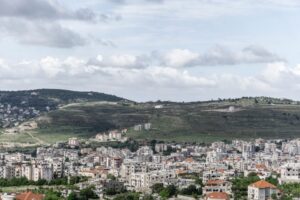
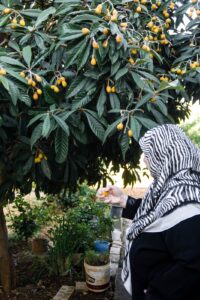
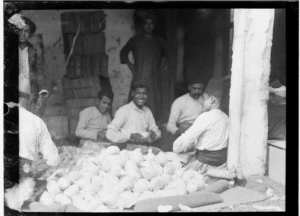
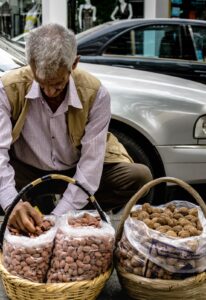
Resources:
Check out the Dharma of Solidarity events and workshops coming up at Naropa.
Denver Public Library resources
History Channel educational resources
Life in Palestine from 1890 to 1937 – Middle East Eye
Music
Fairuz – Edash Kan Fi Nas – Fairuz is a widely known singer in the Middle East whose songs are unanimously played throughout the morning: from corner bakeries to taxi cabs and schools.
Nizar Qabbani is a Syrian poet who wrote about love and beauty. Many of his writings were later turned into song, like this song titled The School Of Love, sung by Iraqi artist Kazim Al Saher
Granada by Marcel Khalife. Marcel Khalife is a Lebanese composer and singer who plays the oud in this song with a mix of Spanish/Arabic tunes. Close your eyes and travel with the melody in this song. Sit with this as a sound meditation.
Fasateen by Mashrou’ Leila – Modern Lebanese band
Jowan Safadi – Super White Man – Palestinian Musician
Julia Botros – Ya Osas – A Lebanese song about the tenderness of stories
Ghir Enta – Souad Massi– Franco-Algerian singer/songwriter
Poetry
Mahmoud Darwish – Write Down, I Am Arab – Mahmoud Darwish is a Palestinian poet who dedicated his life to the cause of Palestinian liberation. His poems and voice are widely known and celebrated.Text version of the poem ID Card
Naomi Shihab Nye – Gate A-4. Naomi is a Palestinian American poet who writes tenderly about her experience as an Arab American.
Insha’Allah by Danusha Lameris
Khalil Gibran – And When My Sorrow Was Born – Lebanese artist and poet who spent most of his life in the United States
Food
Muhammara is a red pepper dip made with walnuts and onions, and it is oh so tasty. Check out this recipe by Joummana Acad from Taste Of Beirut
Labne with Za’atar on Toast – a short cooking segment I did for ABC4 Utah
Palestine On a Plate – Fabulous cookbook worth having in your kitchen

